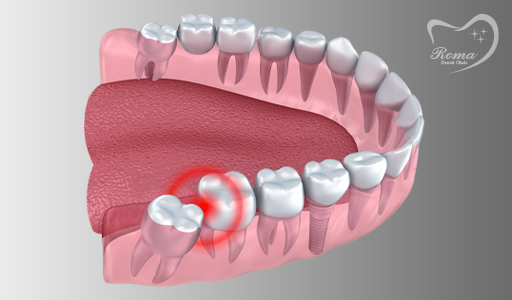Dental surgery

Toothache can be one of the worst and most annoying pains that humans can experience for a variety of reasons. Certainly, observing oral hygiene can prevent toothache to a great extent. But in some cases, the teeth may need surgery. There are different types of dental surgery depending on the type of dental problem. For this reason, in the following, we want to fully acquaint you with the types of dental surgeries.
The most common types of dental surgery
Dental surgeries can be classified into several types. The most common of which are as follows.
- Neurosurgery : One of the simplest and most common internal dental surgeries , Denervation or root canal. After tooth decay, the vein tissue and nerves are cut. After the infection dries out and the tooth nerve is removed, the toothache stops. If the denervation does not stop the toothache, it is necessary to cut the nerve from its highest part. However, denervation is one of the most convenient and uncomplicated dental surgeries, usually performed in two to three 40-minute to one-hour sessions.
- Wisdom tooth surgery : Other dental surgeries can include surgery Wisdom teeth pointed. There are several reasons why wisdom teeth do not grow fully and remain hidden inside the jaw. In this case, the jaw may become very painful or a lot of pressure may be applied to the side teeth. Therefore, with the help of surgery, wisdom teeth can be completely removed. The best time to have wisdom tooth surgery is 20 to 40 years old. Because after the age of 40, it will be very difficult to extract wisdom teeth.
- Implantable tooth surgery : In some cases, it may be for various reasons such as Lack of enough space for teeth to grow latently. In this case, the tooth grows inside the jawbone and may cause annoying pain. Therefore, to prevent injury to other teeth and jaw injury, it is necessary to remove the impacted tooth from the jaw as soon as possible with the help of surgery. If the problem is due to the small size of the jawbone, the dentist first divides the tooth into several parts and then removes some of the jawbone from the mouth.
- Implants : Other dental surgeries include dental implants. This surgery is one of the most common cosmetic dental surgeries today, which is performed to enhance beauty and help better chewing. If a person has lost a tooth for any reason. With the help of this surgery, a permanent tooth (implant) can replace a lost tooth.
Care after dental surgery
- Be sure to hold sterile gauze on the operated tooth for about 20 minutes after surgery.
- Avoid emptying your mouth or sucking too hard. Because it increases bleeding as well as severe pain after surgery.
- Try to drink cold liquids or eat ice cream to stop bleeding after surgery.
- Try to eat soft and cool foods for 24 hours after surgery.
- To speed up the healing process, try to use the medications prescribed by your doctor in a timely and complete manner.
- Strictly avoid drinking liquids with a straw, as well as smoking cigarettes and hookahs. Because these actions can lead to blood clots. They also delay the healing process and cause severe pain at the surgical site.
- Swelling, bleeding, and pain are normal for up to two days after dental surgery and usually resolve completely within a week.
- Do not use a toothbrush on any day of surgery.
- You should usually see a dentist 7 to 10 days after surgery to remove the stitches.
- If the bleeding is excessive and uncontrollable, be sure to see a dentist and avoid taking medication arbitrarily.


